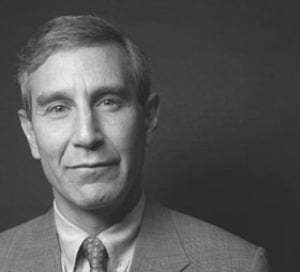It is often infuriating to see the advice that my PR colleagues are giving to compromised companies, but sometimes it’s just embarrassing.
Such was the case with the advice that Edelman Public Relations principal Richard Edelman was doling out to the tar sands industry this week. Edelman was quoted in the Vancouver Sun telling tar sands insiders at a conference in Alberta that they should start pushing their position on Facebook and Twitter.
“You have to go where the conversations are,” he said.
This is bad advice on so many counts.
First, Edelman is suggesting that developers of the Alberta tar sands, the second largest oil deposit on earth, have a public relations problem that can be cured with better communications.But the tar sand companies don’t have a “PR problem” – they have a toxic tailings pond that you can see from space and a gathering list of downstream cancer cases.
The tar sands development isn’t a PR problem. It’s the single largest point source of greenhouse gases in Canada. It’s a REAL problem and one that you won’t fix with snappy tactics or innovative advertising strategies.
But Edelman says:
“There is insufficient understanding of the benefits, there is insufficient understanding of the environmental protections, the opposition is defining you, and now is the time to act.”
I like the last clause. I have always believed that you are defined, not by your opposition, but by your actions. You get the reputation you deserve.
If there is “insufficient understanding of the environmental protections,” that might be because oil company guards patrol barbed-wire fences around their perimeter, refusing to let environmentalists – or even research scientists – study the devastated landscapes.
If Edelman finds “insufficient understanding of the benefits,” that may be because people are beginning to look at the purported benefits in relation to the environmental costs. The world climate faces an unprecedented threat – in response to which the Canadian government has given tar sands developers a free ride on carbon containment and the provincial government seems on the verge of a decision to lower royalty charges that are already among the cheapest in the developed world.
But the biggest objection I have to Edelman’s advice is that it just won’t work. First of all, if the tar sands companies stumble into interactive conversations in new media platforms like Facebook and Twitter, they will get bashed to bits. The reason the oil-patch giants prefer old media – mainstream media – is that all the communication is one way and it’s easy to dominate. Internet-based media sources – especially open-access ones like Facebook and Twitter – aren’t so easy to control.
This is especially true when industry is in the conversation. Every recent poll shows that corporations and corporate associations have even less credibility than politicians – while environmentalists like Canada’s David Suzuki are being identified as the most believable sources on issues like climate change.
And even if Edelman has a plan for gaming the major new media players – for allowing oil sands communicators an opportunity to speak without have to listen to the lively feedback that makes social media credible – they will not be able to stay, as Edelman says, “in the game.” Part of the reason that people have started searching for news and views in social media is that they recognize that mainstream sources have been compromised or corrupted. If, in this innovative age, the one-way PR players succeed in compromising Twitter or Facebook, the conversation will just move somewhere else.
I agree that there is a pressing PR problem in the climate conversation – and in the conversation about huge developments like the tar sands. PR practitioners like Edelman are encouraging companies to believe that they can succeed without changing. That’s a shorft-term solution, at best – and one that will lead the companies, the country and the world to an even greater crisis down the road.
It’s time that the senior players in firms like Edelman, APCO, Burson Marsteller and Hill and Knowlton figured that out. Until they do, they will BE the biggest part of the problem.
Subscribe to our newsletter
Stay up to date with DeSmog news and alerts






